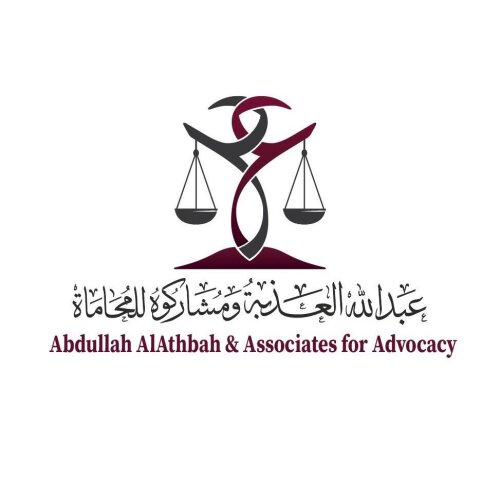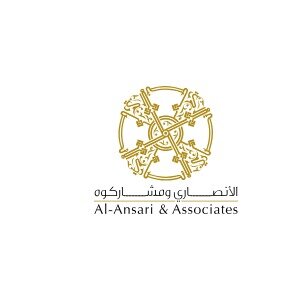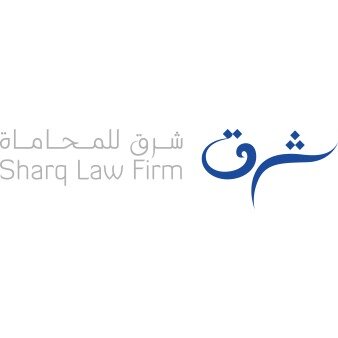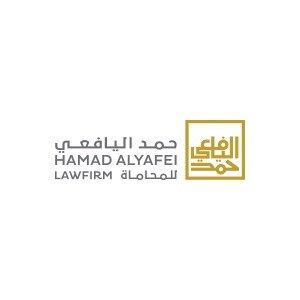Best Tax Increment Financing Lawyers in Doha
Share your needs with us, get contacted by law firms.
Free. Takes 2 min.
List of the best lawyers in Doha, Qatar
About Tax Increment Financing Law in Doha, Qatar
Tax Increment Financing (TIF) is a public financing method that is used as a subsidy for redevelopment, infrastructure, and other community-improvement projects. In Doha, Qatar, TIF is leveraged to stimulate urban development by redirecting future increased property tax revenue from a defined area to fund current improvements. These projects are typically initiated to revitalize underdeveloped or distressed areas, creating favorable conditions for private sector investment.
While TIF can be an effective tool for economic development, it involves complexities and regulatory requirements. Understanding local policies, the allocation of funds, and the eligibility criteria for projects under TIF is crucial for successful implementation.
Why You May Need a Lawyer
Engaging with Tax Increment Financing can be complex due to the interplay of public and private sector interests, substantial financial commitments, and strict compliance requirements. Here are some reasons why you might need a legal advisor:
- Complex Negotiations: Lawyers can provide essential advice during negotiations between developers and government authorities, ensuring that all parties understand their obligations and rights.
- Regulatory Compliance: Legal professionals can help navigate the local legal framework, ensuring compliance with Qatar's real estate, financial, and environmental regulations.
- Documentation and Contracts: Preparing and reviewing all documentation and contracts related to TIF agreements is essential to safeguard your interests.
- Dispute Resolution: In case of disputes between stakeholders, having a lawyer can ensure resolutions that are fair and in accordance with the law.
Local Laws Overview
Doha's legal framework governing TIF involves several laws and regulations that stakeholders must adhere to. Key aspects include:
- Property Law: Understanding property ownership rights and obligations in Qatar is crucial, especially given the significant financial implications of TIF projects.
- Municipal Regulations: These regulations dictate the requirements for urban development and the role of local municipalities in TIF projects.
- Investment Law: Foreign and domestic investors must comply with national investment regulations when participating in TIF-funded projects.
- Environmental Laws: To ensure sustainable development, adherence to environmental regulations is mandatory for TIF projects.
Frequently Asked Questions
What is the primary purpose of TIF in Doha?
TIF is primarily used to encourage development in underutilized or blighted areas by providing financial incentives that attract private investment.
Who initiates TIF projects?
TIF projects are typically initiated by government entities, which collaborate with private developers and investors.
How is the increase in tax revenue calculated?
The increase, or increment, in tax revenue is based on the difference between the current property value and its value after development.
Is TIF funding applicable to all types of projects?
No, TIF funding is generally reserved for projects that have a significant public benefit, such as infrastructure improvements or community enhancement.
Are there any risks involved with TIF?
Yes, there are risks such as potential financial shortfalls if projected increases in tax revenue do not materialize as expected.
What role do municipalities play in TIF?
Municipalities play a crucial role in approving TIF projects and ensuring they align with local development plans and regulations.
How long does a TIF district exist?
The duration varies but typically a TIF district can exist for up to 20-25 years or until all TIF-funded projects are complete and debts are paid off.
Can existing businesses apply for TIF funds?
Existing businesses can apply if their projects demonstrate a substantial public benefit that aligns with the goals of the TIF initiative.
What happens if a TIF project fails?
If a project fails, the financial risk is primarily borne by the developers or investors rather than taxpayers, although it may lead to public financial concerns if not managed properly.
Can TIF be used for residential projects?
Yes, TIF can be used for residential projects, particularly those that aim to create affordable housing or revitalize residential areas.
Additional Resources
For individuals seeking more information on TIF in Doha, consider exploring the following resources:
- Ministry of Municipality and Environment: They provide guidelines and regulatory frameworks for urban development.
- Qatar Financial Centre: Offers information on investment laws and opportunities available within the country.
- Local Law Firms: Specialized in property and investment law, they can provide personalized legal advice based on the latest legislative changes.
- Economic Zones Company (Manateq): Provides insights into economic zone developments, which may include TIF projects.
Next Steps
If you are considering engaging in a TIF project in Doha, Qatar, here are some steps you can take:
1. Research: Understand the scope, benefits, and risks involved in TIF projects.
2. Consult an Expert: Seek legal advice from a lawyer specialized in Tax Increment Financing and Qatari law to guide you through the process.
3. Engage Local Authorities: Reach out to local government bodies to understand available projects, collaboration opportunities, and compliance requirements.
4. Prepare Documentation: Ensure all necessary documents, proposals, and contracts are in place and align with local legal standards.
By following these steps and making informed decisions, you can effectively navigate the complexities of Tax Increment Financing in Doha, Qatar.
Lawzana helps you find the best lawyers and law firms in Doha through a curated and pre-screened list of qualified legal professionals. Our platform offers rankings and detailed profiles of attorneys and law firms, allowing you to compare based on practice areas, including Tax Increment Financing, experience, and client feedback.
Each profile includes a description of the firm's areas of practice, client reviews, team members and partners, year of establishment, spoken languages, office locations, contact information, social media presence, and any published articles or resources. Most firms on our platform speak English and are experienced in both local and international legal matters.
Get a quote from top-rated law firms in Doha, Qatar — quickly, securely, and without unnecessary hassle.
Disclaimer:
The information provided on this page is for general informational purposes only and does not constitute legal advice. While we strive to ensure the accuracy and relevance of the content, legal information may change over time, and interpretations of the law can vary. You should always consult with a qualified legal professional for advice specific to your situation.
We disclaim all liability for actions taken or not taken based on the content of this page. If you believe any information is incorrect or outdated, please contact us, and we will review and update it where appropriate.
















